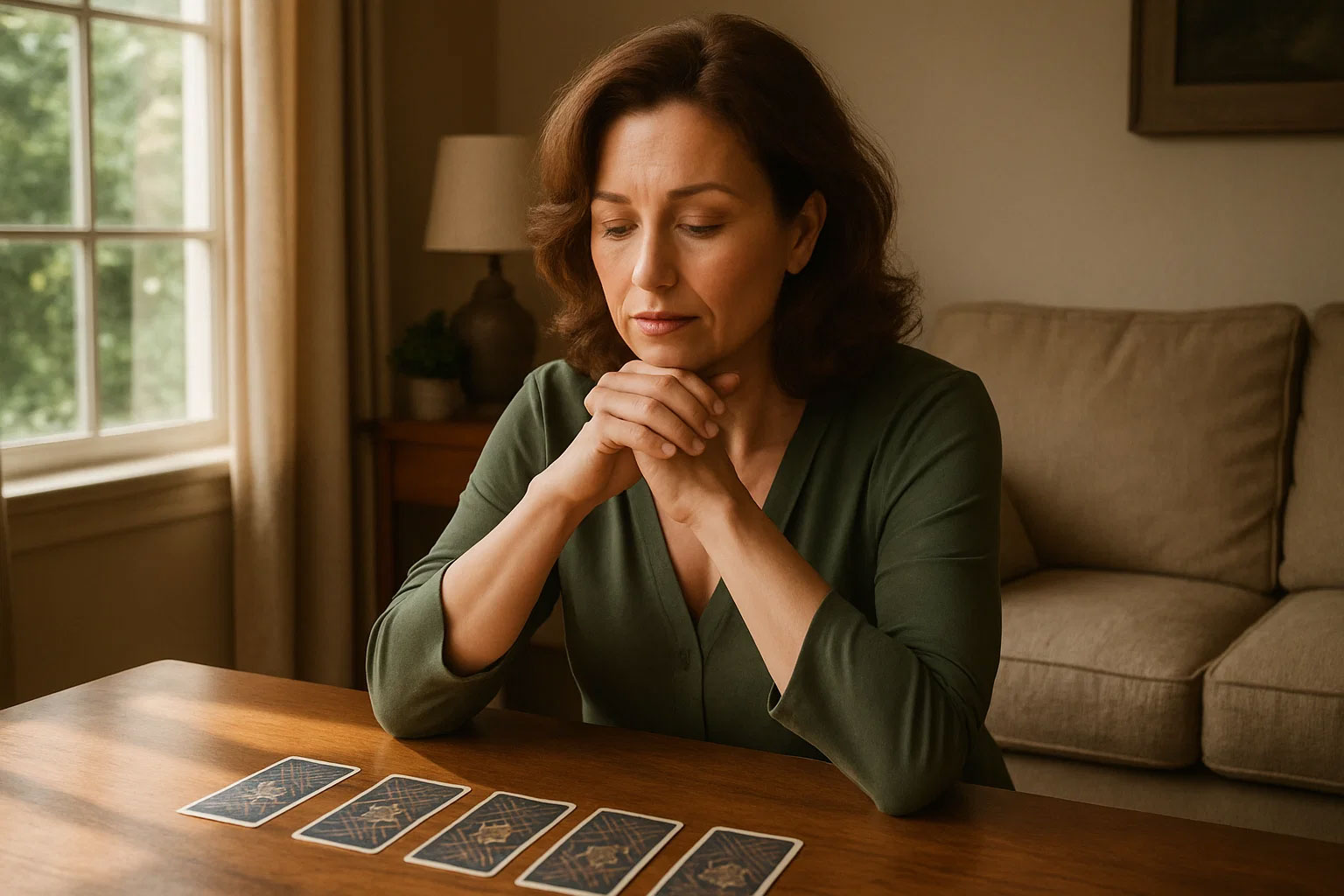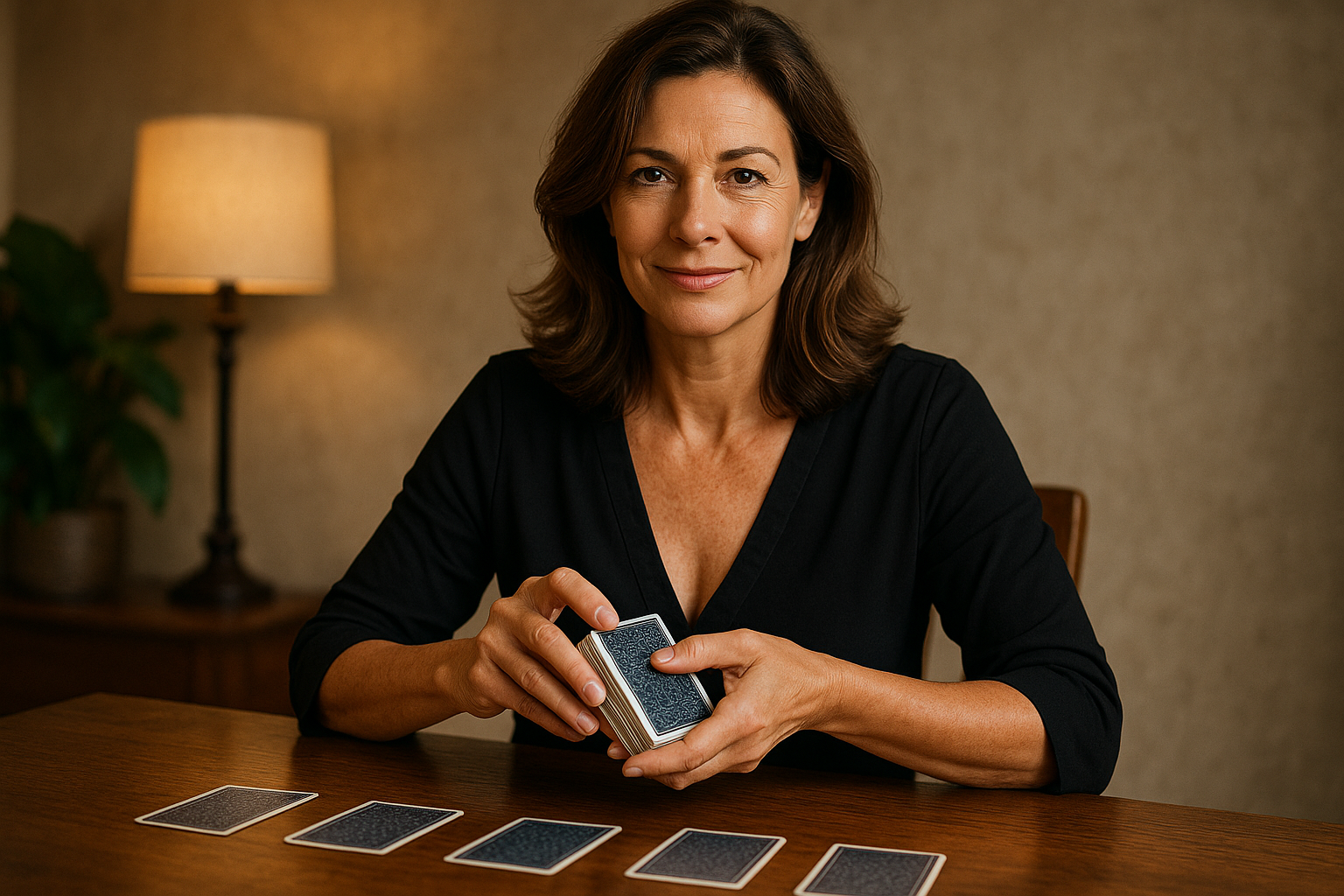Let's get something straight right off the bat: you don't need to burn sage, own a single crystal, or believe in past lives to get something valuable out of a tarot reading. In fact, some of the most interesting tarot sessions happen with people who walk in rolling their eyes and leave scratching their heads, wondering why they suddenly have clarity about their messy relationship or career funk.
The Magic of Perspective (No Actual Magic Required)
Here's the thing about tarot that often gets lost in all the mystical marketing: it's essentially a very sophisticated conversation starter. Those 78 cards? They're like a therapist's question deck on steroids, designed to make you look at your life from angles you probably haven't considered.
Think about it. When was the last time someone asked you to really examine the "hidden influences" in your work situation, or consider what you're "moving toward" versus what you're "leaving behind"? These aren't mystical concepts—they're just reframing techniques that good therapists, coaches, and wise friends use all the time. Tarot just happens to package them in mysterious-looking cards with medieval artwork.

When Life Feels Like Watching Paint Dry
Maybe you don't have burning questions about love or career. Maybe life is just... fine. Beige. A Tuesday that's stretched into several months. This is actually when tarot can be most useful, because it forces you to look for patterns and possibilities you might not notice when you're just going through the motions.
An intuitive reader—someone skilled at reading both cards and people—can spot things you've become blind to. They might point out that you keep mentioning work in every answer, even when the question was about family. Or they notice that your voice changes completely when certain topics come up. These aren't psychic powers; they're observation skills that most of us are too close to our own lives to use effectively.
The Beautiful Accident of Randomness
There's something weirdly liberating about having a stranger shuffle some cards and tell you what they see. It takes the pressure off. You're not making decisions or commitments—you're just exploring possibilities. The randomness becomes a feature, not a bug. Instead of overthinking your way into paralysis, you're reacting to whatever comes up.
"The cards say you're in a period of transition." Well, isn't everyone, always? But suddenly you're thinking about what kind of transition, and whether you're fighting it or embracing it, and why the idea of change makes you want to hide under a blanket.

Entertainment That Accidentally Becomes Enlightenment
Now, let's be honest about something: our online tarot readings are designed for entertainment first. We're not claiming to channel your deceased grandmother or predict your lottery numbers. But here's the funny thing about entertainment—sometimes it sneaks up on you with actual insights.
You might click through for fun, expecting nothing more than a digital fortune cookie, and find yourself thinking about that reading for days. Maybe it suggested you're more creative than you give yourself credit for, or that you're holding onto something that's not serving you anymore. These ideas don't have to come from the universe to be useful—they just have to come at the right moment when you're ready to hear them.
For the Spiritually Curious (And Those Who Aren't)
For those who do lean into the spiritual side of things, there's a beautiful concept that nothing is truly random—that you found your way to that reading precisely when you needed to. Maybe your spirit was ready for a gentle nudge, a reminder, or just a moment of reflection in the chaos of daily life.
But even if you think that's complete nonsense, the practical result is the same. You carved out a few minutes to think about your life from a different angle. You considered possibilities you hadn't entertained. You gave yourself permission to be curious about your own story.
The Real Magic Trick
The actual magic of tarot isn't in predicting the future—it's in making the present more interesting. It transforms ordinary questions into explorations. It makes you the protagonist of your own story instead of just someone things happen to.
Whether you believe the cards chose you or you chose the cards, you're still sitting there having thoughts about your life that you wouldn't have had otherwise. You're still walking away with new questions to ponder, new perspectives to consider, or at the very least, a few minutes where you focused entirely on yourself instead of your endless to-do list.
And really, in a world that's constantly demanding your attention for everything except your own inner life, isn't that worth the price of admission?
The Bottom Line
Tarot works because it gives you permission to be curious about yourself. It works because it asks interesting questions. It works because sometimes you need a stranger with a deck of cards to point out what you already know but haven't been willing to admit.
You don't need to believe in destiny or spirit guides or cosmic energy. You just need to believe that your inner life is worth exploring, and that sometimes the most profound insights come from the most unexpected places.
So whether you're seeking spiritual guidance or just killing time on a Tuesday afternoon, the cards are ready when you are. Your spirit—whatever you choose to call it—might just be ready too.